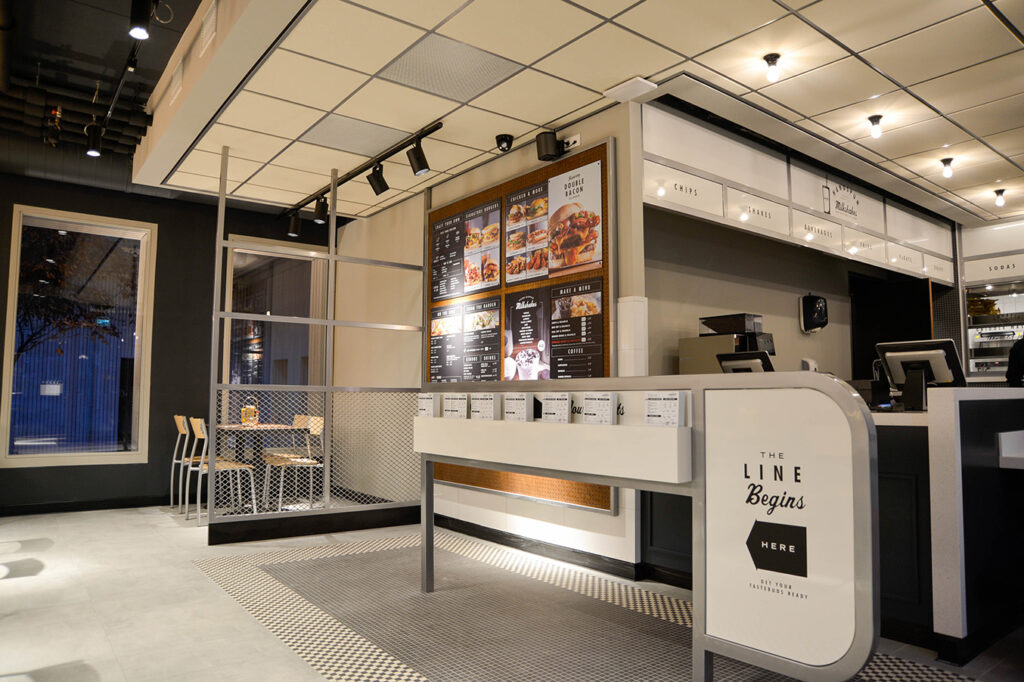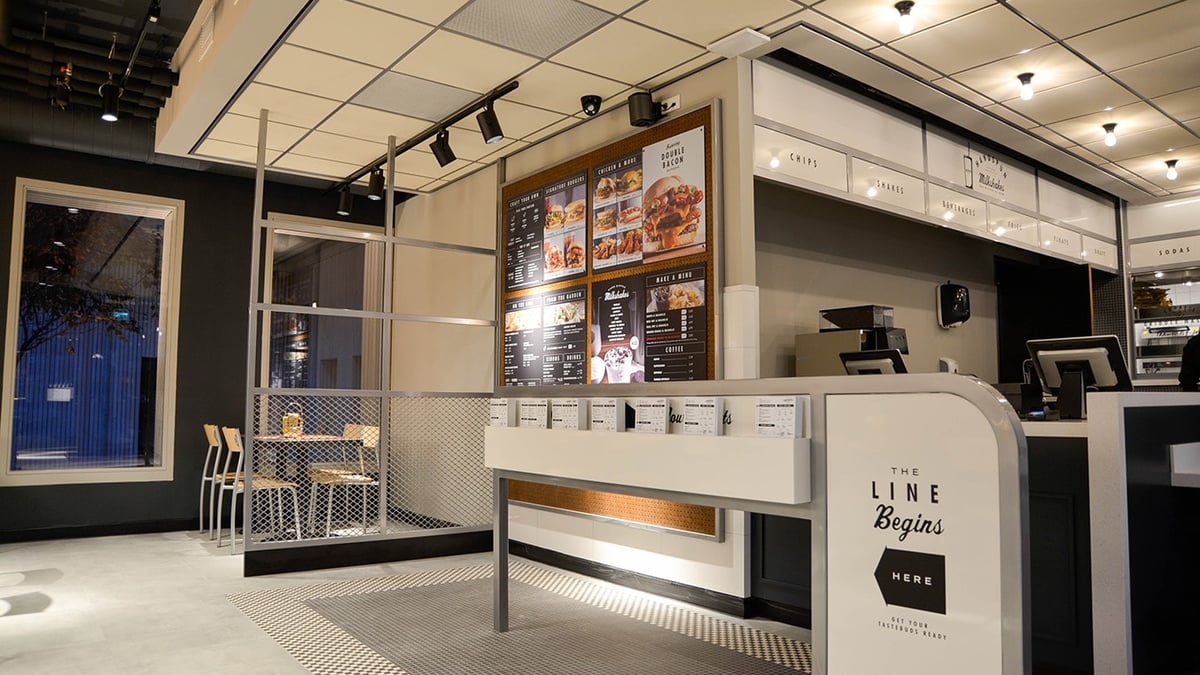 Fast-casual dining thrives in the sweet spot of the restaurant landscape, blending the best aspects of quick-serve restaurants (QSR or “fast food”) and casual dining (think full-service concepts such as Chili’s or P. F. Chang’s). This segment marries the ease and convenience of fast food with a more enticing atmosphere for dining in and better, fresher ingredients. Customers may order from a menu board, just as they would at a fast food outlet, and then enjoy a sit-down dining experience more like they would in a casual dining establishment.
Fast-casual dining thrives in the sweet spot of the restaurant landscape, blending the best aspects of quick-serve restaurants (QSR or “fast food”) and casual dining (think full-service concepts such as Chili’s or P. F. Chang’s). This segment marries the ease and convenience of fast food with a more enticing atmosphere for dining in and better, fresher ingredients. Customers may order from a menu board, just as they would at a fast food outlet, and then enjoy a sit-down dining experience more like they would in a casual dining establishment.
In 2018, Restaurant Business reported findings by foodservice research firm Technomic that fast-casual concepts are leading growth in the restaurant industry. And QSR magazine found that fast-casual is the only restaurant segment to grow traffic in the past five years.
Fast-Casual Franchise Opportunities — What’s Out There
As the fast-casual segment continues to grow, many brands and concepts are appearing and spreading their reach. Franchise owners are able to command a higher price point than for fast food, as consumers are willing to pay a little more for higher quality.
As consumers have trended in the last decade toward exploring new and different cuisines, fast-casual has met the demand with everything from myriad culinary concepts to hyper-focused efforts on building a better burger. Regardless of type of cuisine, one common attractive trait of fast-casual for franchisees is a smaller footprint, which can reduce operating costs and be more manageable than a larger restaurant. If we look at burger franchises, for example, the average traditional Wayback restaurants are between 1,600 and 1,800 square feet — in contrast to the average McDonald’s or Burger King franchise (traditional locations for both are approximately 4,000 square feet), which means costs associated with real estate, buildout and equipment are less.
What to Look for in a Fast-Casual Franchise
When considering a fast-casual franchise, it’s important to look for a brand and concept that is on-trend, shows continued growth, provides franchise owners with support , and whose investment threshold is accessible.
Being on-trend means devoting real attention and resources to addressing evolving consumer expectations and demand; a good franchisor should be doing all the market research, product development and homework for you. Check into whether the franchisor exhibits a keen balance of quality and on-brand appeal in its core menu offerings while still updating menu items over time to stay relevant.
And take a look at how the brand incorporates new technologies for improved operational efficiency and customer satisfaction. For example, delivery is of rapidly increasing importance to consumers; the fast-casual brands that adapt well to delivery will take the lead in the category. A forward-thinking fast-casual franchisor will never stop looking for ways to engage its customers.
It’s also important to understand the initial investment level and financial requirements. One of the many benefits to buying into a franchise is that the franchisor is required, by law, to provide an accurate representation of the average initial investment and a breakdown of each line item therein. Most franchise brands also require new franchisees to meet minimum financial standards. Wayback Burgers, for example, looks for franchise candidates with at least $200,000 in liquid capital.
How Wayback Charts the Way Forward — and In
Staying not just on top of but just ahead of trends is critical for success. As food delivery by restaurants proliferates, some fast-casual brands, trying to catch up to the trend, may show up at your door with soggy fries. But Wayback Burgers has introduced a special delivery vehicle that ensures a fresh product with on-site cooking capabilities.
The burger franchise also launched a new mobile app in 2018 making it more convenient for customers to purchase cooked-to-order burgers and other items, plus the ability to monitor rewards points and use other features.
Thanks in part to innovations, Wayback Burgers continues to grow and expand, adapting to market conditions and coming out on top time and time again.
And in terms of market entry, with a Wayback Burgers franchise, a franchisee’s initial investment is somewhere between $209,000 and $633,000, making it more accessible to entrepreneurs looking for the opportunity to start their own fast-casual burger franchise for well under $1 million.
Wayback Burgers offers qualified candidates the opportunity to open and operate a business in the highly sought-after fast-casual sector with a small footprint and a big upside. Currently operating in 30 states and seven countries, the Connecticut-based burger franchise increased its system size by 14 percent in 2018, reaching 156 locations, and is projecting similar growth for 2019. Wayback offers initial training and ongoing support for all its franchisees and works diligently on finding innovative ways to offer franchisees the opportunity to increase revenue while adding value to the customer experience. For more information on how to get started visit https://waybackburgers.com/franchising/.

